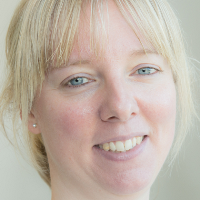To donate, or not to donate? Dynamics at play in long-term charity donations

When given the choice to donate their money to charity or to keep it, most people will keep it, according to a new study by University of Groningen researchers Marijke Leliveld and Hans Risselada that provides one of the first insights into the dynamics underlying long-term charity donations.
Despite the vast body of research on charitable giving and its drivers, no research has investigated the longitudinal dynamics of individual donation decisions. Leliveld and Risselada analyzed unique data with nearly 300,000 real donation decisions made by more than 20,000 individuals for a period of 10 months. Each decision entailed a choice of what to do with money received for completing a survey (on average, €0.67 per survey): keep it or donate to charity. The researchers found that most of the participants (89%) always chose to keep the money.


Within the group of people who sometimes kept and sometimes donated the money (that is, Switchers), we find that people do not change their decision very often (cf. moral consistency). However, the likelihood of donating increases when people kept the money the previous time, and the amount at stake differs substantially (both positively and negatively). Finally, once Switchers donated, they are more likely to keep the money next time if they can earn more (for example, €2 now versus €0.50 last time), signaling moral compensation. These longitudinal data provide a first step to better understand charity donation decisions, not only in terms of a more nuanced description of decision-makers but also in terms of the dynamics of charity donations.
More information
- Contact: Marijke Leliveld en Hans Risselada
- See also the full publication in Sciences Advances: Dynamics in charity donation decisions: Insights from a large longitudinal data set
________________________________________________
> More news from the Faculty of Economics and Business
> FEB experts in the media


| Last modified: | 29 February 2024 10.02 a.m. |
More news
-
13 May 2024
Trapping molecules
In his laboratory, physicist Steven Hoekstra is building an experimental set-up made of two parts: one that produces barium fluoride molecules, and a second part that traps the molecules and brings them to an almost complete standstill so they can...
-
08 May 2024
Juliette de Wit, Femke Cnossen and Maite Laméris receive YAG grant
Juliette de Wit, Femke Cnossen and Maite Laméris have received a YAG Grant of € 6,000 for an interdisciplinary project on the long-lasting socio-economic consequences of the ‘Arbeitseinsatz’ in the Netherlands. The grant enables them to explore...
-
02 May 2024
Johan Remkes te gast in podcast Leiderschap in Onzekere Tijden Live
Oud-minister en oud-informateur Johan Remkes is op 15 mei te gast in de Podcast Leiderschap In Onzekere Tijden. In de liveopname van de podcastaflevering gaat hij met FEB-hoogleraren Janka Stoker en Harry Garretsen in gesprek over de huidige...
